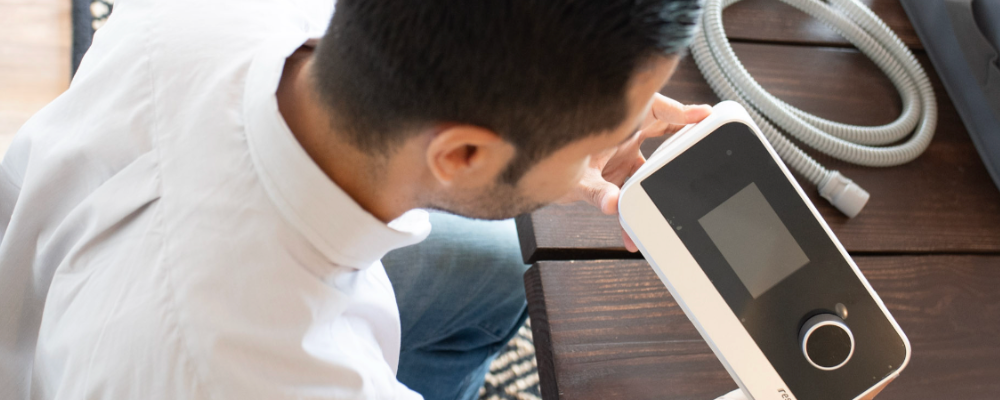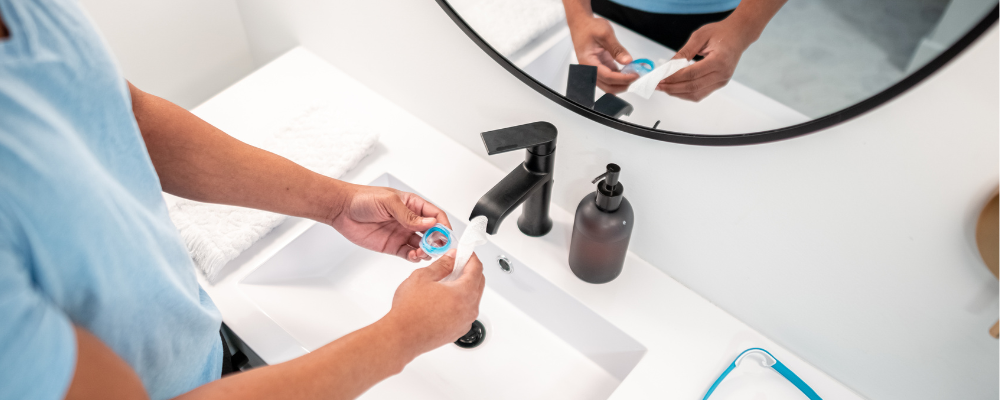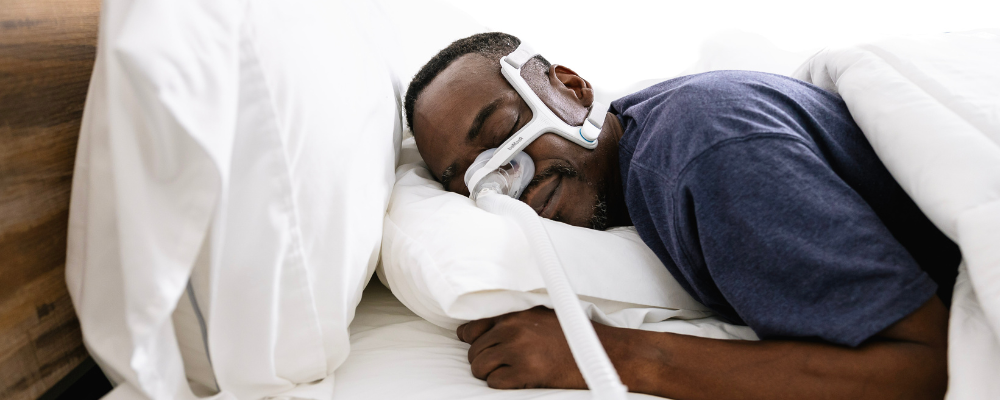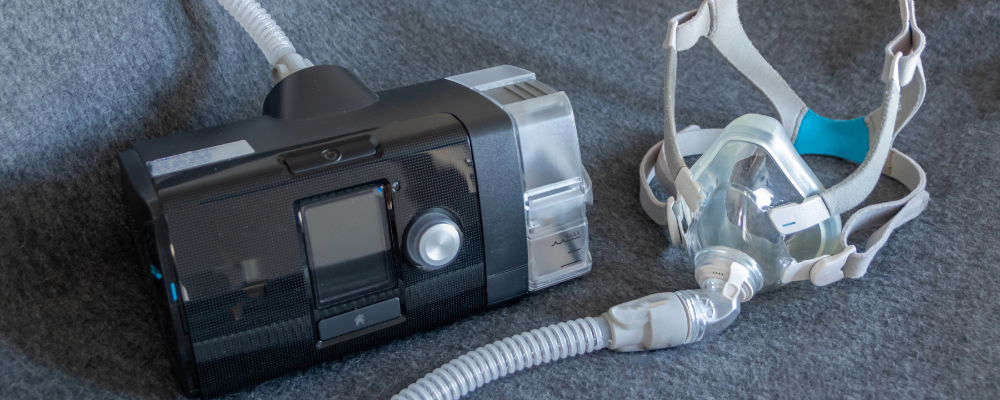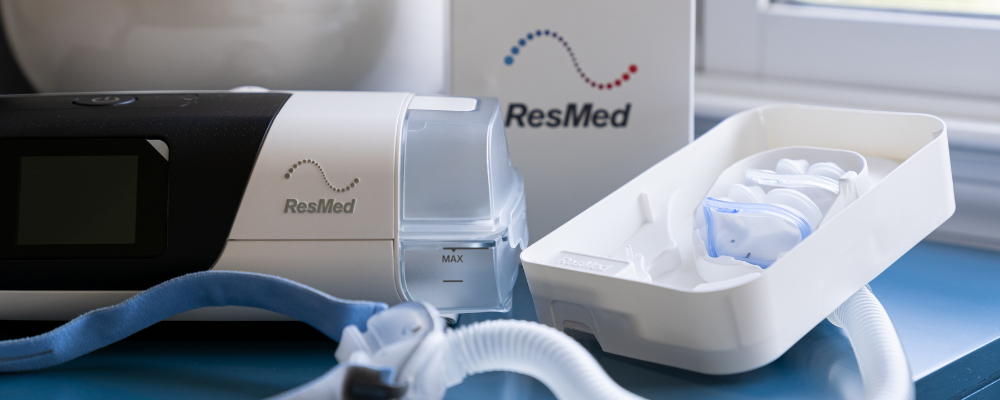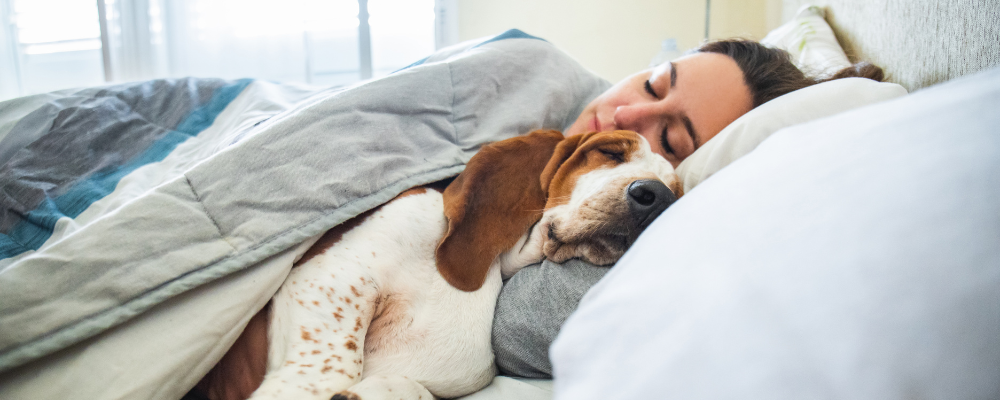If you’re reading this, you’re probably noticing that your CPAP therapy isn’t as effective as it once was. Maybe your machine is starting to make strange noises, or maybe you’re feeling fatigued again. Whatever the reason, it’s important to take action before your CPAP machine fails. There are 4 common signs that you can look out for. We’ll also cover tips to try out before giving up on your machine, and more importantly, what to do when it’s time to go ahead and replace it.
4 Signs That You Need To Replace Your CPAP Machine
1. Your CPAP Machine Makes Noise When Inhaling
It’s normal for your CPAP machine to make some noise, but it shouldn’t change with every inhale. First, rule out air leaks in your CPAP mask or cracks in your tubing. These parts should be replaced every 3 months and are usually covered that frequently by your insurance.
If you’ve replaced both and your machine is still making unusual noises, it could be a sign that the motor is failing, which means you might not be receiving the proper air pressure for your therapy.
2. Your Humidifier Doesn't Need To Be Refilled As Often
Are you noticing your water level isn’t going down? That’s a sure sign something is wrong. If your humidifier isn’t built into the machine, disconnect it and see if your machine works without it. Replacing the humidifier may be less costly than replacing the entire device.
You will need a prescription to order a new humidifier, whether it’s covered by insurance or not. If you need help finding or updating any prescription, your Aeroflow Sleep Specialist can reach out to your doctor and take care of it for you! Call us directly at 866-616-1687.
3. You're Still Snoring With CPAP Use
Snoring is extremely common with sleep apnea, but you definitely shouldn’t be snoring while using your CPAP. If you’ve started snoring again, it means that your pressure isn’t strong enough to prevent your airway from collapsing.
Before you point fingers at your machine, try the following first:
- Sleep on your side; sleeping on your back or stomach can contribute to the blocking of your airways
- Check your CPAP mask for leaks; ensure that your seal is tight, that there are no cracks in your mask cushion, and that your headgear hasn’t stretched
- Switch to a full face mask or buy a chinstrap to go with your nasal/nasal pillows mask; if you sleep with your mouth open, your air pressure may be escaping as you breathe
If you’ve tried all of the above and you’re still snoring, your machine may no longer be able to provide the pressure you need. Whether your snoring is due to a machine in need of repairs or because of lifestyle changes—like weight gain—talk to your doctor or healthcare provider about adjusting your air pressure.
4. You Wake Up Still Tired With CPAP Use
Suddenly struggling with excessive daytime sleepiness again could indicate your CPAP machine is failing to deliver adequate sleep apnea therapy. As with snoring, you should try to rule out any other reasons that may contribute to a loss of air pressure. If you’re still finding yourself in need of a nap, talk to your doctor about the return of these symptoms, too. They may recommend adjusting your pressure settings or addressing other lifestyle factors.
Or, it may be time to replace your worn out CPAP machine.
How Often Should I Replace My CPAP Machine?
If your machine is around 5 years old, you should consider replacing it. Don’t wait until these 4 signs appear, or your CPAP device could be failing to deliver effective therapy. The good news? 5 years is also when most insurance providers (including Medicare and Medicaid) will likely cover a brand new CPAP machine!
That makes it a great opportunity to upgrade to improved technology and comfort features that can enhance your sleep quality; including…
Though some CPAP users are able to prolong the life of their CPAP equipment with diligent cleaning and maintenance, you shouldn’t gamble on that. When the manufacturer, insurance company, and Aeroflow Sleep agree, you should plan on that timeframe.
When To Replace Your CPAP Supplies, Too
All of this is well and good for your machine, of course, but your CPAP supplies need to be replaced regularly, too. We previously mentioned that your mask and tubing can be ordered every 3 months. All of your accessories have their own expiration dates.
- Disposable filters: Replace every 2 weeks
- Nasal cushions & nasal pillows: Replace every 2 weeks
- Full-face cushions: Replace every month
- Reusable filters: Replace every 6 months
- Chin straps, headgear & humidifiers: Replace these every 6 months
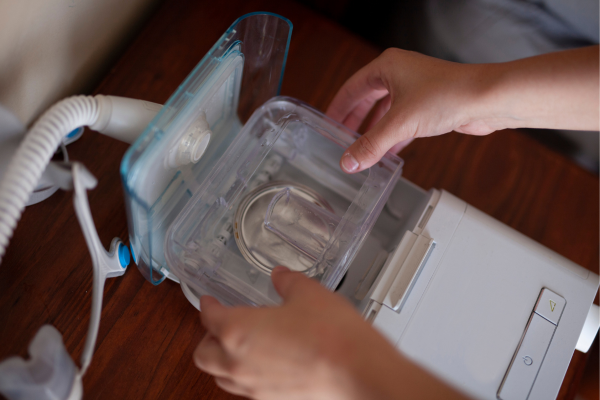

Like for your machine, following a replacement schedule is an essential part of having sleep apnea. Failing to do so makes it easier for bacteria, mold, viruses, allergens, and other irritants to build up; increasing your risk for getting sick.
CPAP Replacement Through Insurance
Not sure whether you’re eligible for new CPAP products? Aeroflow can check your coverage for you! Your dedicated Aeroflow Sleep Specialist can tell you when you qualify for a replacement and help you find the best CPAP equipment available under your policy.
Remember, you’ll need a current prescription to purchase a new CPAP device, whether you go through insurance or not. But not to worry; Aeroflow can help you with that too! We work with your doctor and your insurance provider to obtain your most recent prescription and handle all of the paperwork. All you have to do is give us a call, then choose from top brands like ResMed, Philips Respironics, and Fisher & Paykel. Don’t wait until you’re looking for signs. Contact Aeroflow Sleep today at 866-616-1687!


